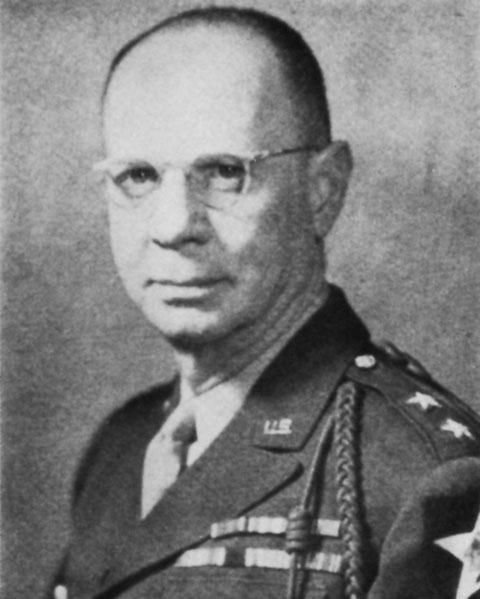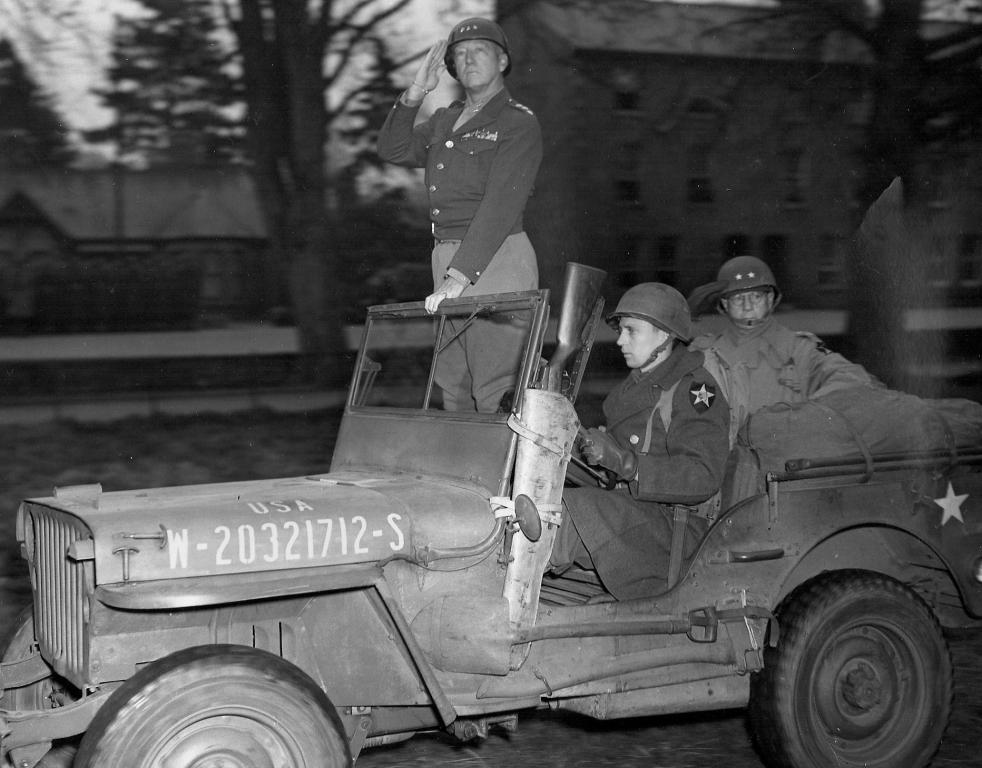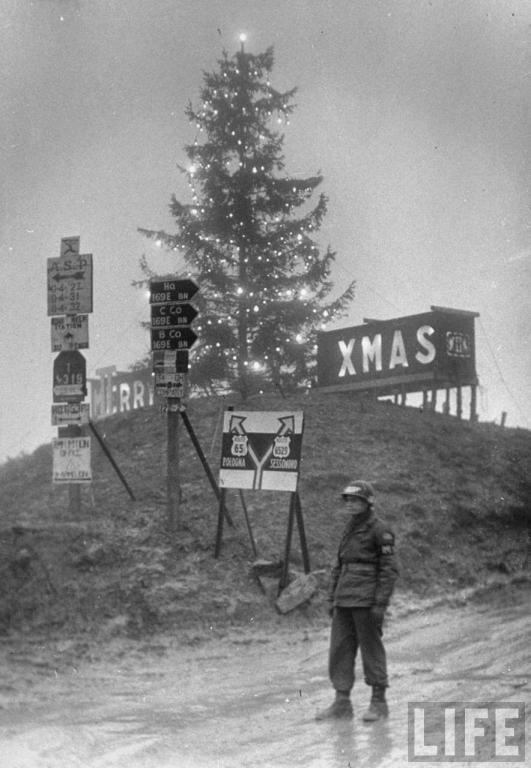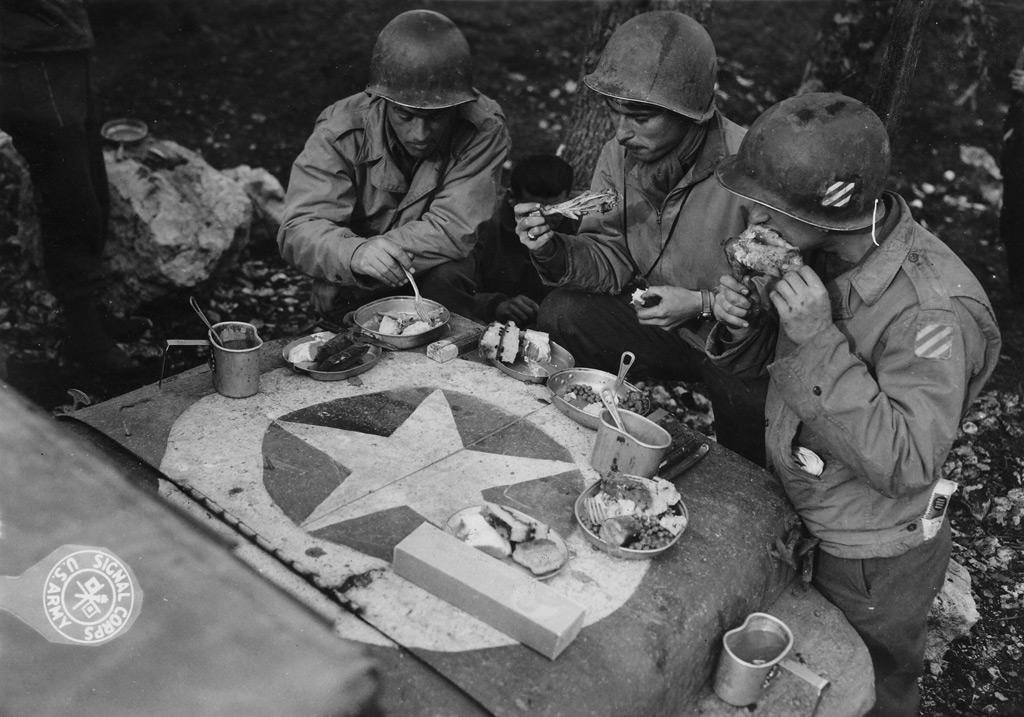-
Contributing Member


15-007 Bonus Merry Christmas
Last edited by Mark in Rochester; 12-23-2015 at 05:00 PM.
He is no fool who gives what he cannot keep to gain that which he cannot lose
There are no great men, only great challenges that ordinary men are forced by circumstances to meet.
-
The Following 9 Members Say Thank You to Mark in Rochester For This Useful Post:
-
12-23-2015 04:41 PM
# ADS
Friends and Sponsors

-
Contributing Member


Just a few thoughts. Xmas on the sign? Thought that was something of late.
Did the Russians really kill Patton?
Who is the two star?.
Really appreciate the photo's mark. They are my first look at on this blog.
Ed
-
The Following 2 Members Say Thank You to ed skeels For This Useful Post:
-
Moderator
(M1 Garand/M14/M1A Rifles)



Originally Posted by
ed skeels

Just a few thoughts. Xmas on the sign? Thought that was something of late.
The use of "X" as shorthand dates back to the first century. The trade language throughout the Roman Empire of the time was a simplified version of Greek called Koine' Greek. The term, "Christ" wasn't originally a proper name, it was a title, " 'o xristos," translated, "the anointed one," meaning the one annointed by God. In the first century Church the proper name was Jesus 'o Xristos. Notice that the Greek word uses the "X" or "Chi" (pronouned "key") for the sound we translittrated into the first two letters of "Christ." We also discard the male ending of the word, "os." And here is the direct connection: as the Church began to be persecuted and it became lethal to speak or write the name of Christ in public, the Church began to abbreviate the name to the first letter, "X," in order to communicate between believers and sympathetic persons with relative impunity. The use of X as an abbreviation for Christ continued after the time of persecution under Rome and is still used by the Eastern churches in their iconography.
So no, the abbreviation "Xmas" is actually just about as old as the feast of celebration of Christ's birth itself which was eventually placed in the church calendar to coincide with Winter Solstice.
I hope that helps a wee bit,
Bob
"It is said, 'Go not to the elves for counsel for they will say both no and yes.' "
Frodo Baggins to Gildor Inglorion, The Fellowship of the Ring
-
The Following 7 Members Say Thank You to Bob Womack For This Useful Post:
-
Contributing Member



Originally Posted by
Bob Womack

The use of "X" as shorthand dates back to the first century. The trade language throughout the Roman Empire of the time was a simplified version of Greek called Koine' Greek. The term, "Christ" wasn't originally a proper name, it was a title, " 'o xristos," translated, "the anointed one," meaning the one annointed by God. In the first century Church the proper name was Jesus 'o Xristos. Notice that the Greek word uses the "X" or "Chi" (pronouned "key") for the sound we translittrated into the first two letters of "Christ." We also discard the male ending of the word, "os." And here is the direct connection: as the Church began to be persecuted and it became lethal to speak or write the name of Christ in public, the Church began to abbreviate the name to the first letter, "X," in order to communicate between believers and sympathetic persons with relative impunity. The use of X as an abbreviation for Christ continued after the time of persecution under Rome and is still used by the Eastern churches in their iconography.
So no, the abbreviation "Xmas" is actually just about as old as the feast of celebration of Christ's birth itself which was eventually placed in the church calendar to coincide with Winter Solstice.
I hope that helps a wee bit,
Bob
Bob
I did not see Greek scholar listed in your profile
great explanation
He is no fool who gives what he cannot keep to gain that which he cannot lose
There are no great men, only great challenges that ordinary men are forced by circumstances to meet.
-
The Following 2 Members Say Thank You to Mark in Rochester For This Useful Post:
-
Legacy Member

the things i learn on this forum never cease to amaze me.
all the best for the festive season to all here.
-
Thank You to henry r For This Useful Post:
-
Contributing Member



Originally Posted by
ed skeels

Just a few thoughts. Xmas on the sign? Thought that was something of late.
Did the Russians really kill Patton?
Who is the two star?.
Really appreciate the photo's mark. They are my first look at on this blog.
Ed
Lt. Gen. Patton with Maj. Gen. Walter Robertson pass in review of Third Army Troops in April 1944 prior to the Normandy invasion in June.
Walter Melville Robertson (June 15, 1888 – November 22, 1954) was an United States Army officer with the rank of Major General. He received the second highest military award, Distinguished
Army officer with the rank of Major General. He received the second highest military award, Distinguished
Service Cross, for his leadership as the commander of the 2nd Infantry Division ("Indianhead") during the Battle of the Bulge

Who Killed Patton?
By Tim Shipman in Washington
7:16PM GMT 20 Dec 2008
The newly unearthed diaries of a colourful assassin for the wartime Office of Strategic Services (OSS), the forerunner of the CIA, reveal that American spy chiefs wanted Patton dead because he was threatening to expose allied collusion with the Russians that cost American lives.
The death of General Patton in December 1945, is one of the enduring mysteries of the war era. Although he had suffered serious injuries in a car crash in Manheim, he was thought to be recovering and was on the verge of flying home.
But after a decade-long investigation, military historian Robert Wilcox claims that OSS head General "Wild Bill" Donovan ordered a highly decorated marksman called Douglas Bazata to silence Patton, who gloried in the nickname "Old Blood and Guts".
His book, "Target Patton", contains interviews with Mr Bazata, who died in 1999, and extracts from his diaries, detailing how he staged the car crash by getting a troop truck to plough into Patton's Cadillac and then shot the general with a low-velocity projectile, which broke his neck while his fellow passengers escaped without a scratch.
Mr Bazata also suggested that when Patton began to recover from his injuries, US officials turned a blind eye as agents of the NKVD, the forerunner of the KGB, poisoned the general.
Mr Wilcox told The Sunday Telegraph that when he spoke to Mr Bazata: "He was struggling with himself, all these killings he had done. He confessed to me that he had caused the accident, that he was ordered to do so by Wild Bill Donovan.
"Donovan told him: 'We've got a terrible situation with this great patriot, he's out of control and we must save him from himself and from ruining everything the allies have done.' I believe Douglas Bazata. He's a sterling guy."
Mr Bazata led an extraordinary life. He was a member of the Jedburghs, the elite unit who parachuted into France to help organise the Resistance in the run up to D-Day in 1944. He earned four purple hearts, a Distinguished Service Cross and the French Croix de Guerre three times over for his efforts.
Croix de Guerre three times over for his efforts.
Mr Wilcox also tracked down and interviewed Stephen Skubik, an officer in the Counter-Intelligence Corps of the US Army, who said he learnt that Patton was on Stalin's death list. Skubik repeatedly alerted Donovan, who simply had him sent back to the US.
"You have two strong witnesses here," Mr Wilcox said. "The evidence is that the Russians finished the job."
The scenario sounds far fetched but Mr Wilcox has assembled a compelling case that US officials had something to hide. At least five documents relating to the car accident have been removed from US archives.
The driver of the truck was whisked away to London before he could be questioned and no autopsy was performed on Patton's body.
With the help of a Cadillac expert from Detroit, Mr Wilcox has proved that the car on display in the Patton museum at Fort Knox is not the one Patton was driving.
"That is a cover-up," Mr Wilcox said.
contrasting view here: The death of General George S. Patton
Last edited by Mark in Rochester; 12-24-2015 at 11:10 AM.
He is no fool who gives what he cannot keep to gain that which he cannot lose
There are no great men, only great challenges that ordinary men are forced by circumstances to meet.
-
-
Contributing Member


Thanks Mark, great research.
I believe I read that Patton wanted to attack the Russians ASAP as he knew they were "problematic". Can't say he was wrong. I doubt if any one wanted any more war, especially with an "ally".
Ed
-
Thank You to ed skeels For This Useful Post:




















 PM
PM











